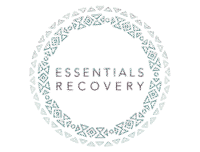Stress is a normal part of life. From deadlines at work to responsibilities at home, everyone experiences stress at some point. While small amounts of stress can actually be motivating, chronic or intense stress can negatively affect your health, relationships, and overall well-being. That’s why learning how to manage stress effectively is crucial to maintaining a balanced life. In this article, we’ll explore techniques for reducing stress and improving mental and physical health.
The Connection Between Stress and Health
Chronic stress doesn’t just affect your mood; it impacts your body as well. When you’re stressed, your body releases hormones like cortisol and adrenaline. These are helpful in short bursts, but when elevated for long periods, they can lead to health issues like high blood pressure, weakened immune system, digestive problems, anxiety, and depression.
Understanding this mind-body connection is the first step in managing stress. When you know how stress affects your body, you’re more likely to take steps to reduce it.
Identifying Your Stress Triggers
Before you can manage stress, it’s important to identify what’s causing it. Everyone has different triggers. For some, it might be financial issues; for others, it could be work, family dynamics, or health concerns.
Take time to reflect on what situations or thoughts consistently cause you tension. Keeping a stress journal for a week or two can be helpful. Write down when you feel stressed, what caused it, how you responded, and how you felt afterward. Over time, patterns will emerge, helping you understand where to focus your efforts.
Mindfulness and Meditation
Mindfulness and meditation are powerful tools for managing stress. These practices encourage you to focus on the present moment rather than worrying about the past or future.
Mindfulness can be as simple as paying attention to your breathing or fully engaging with the task at hand. Meditation, on the other hand, often involves setting aside time each day to sit quietly, focus on your breath, and gently let go of distracting thoughts.
Even a few minutes of mindfulness or meditation daily can reduce anxiety, improve focus, and promote a greater sense of calm.
Breathing Exercises to Calm the Nervous System
One of the quickest ways to reduce stress is through deep breathing. When you’re stressed, your breathing often becomes shallow and rapid. Deep, slow breathing signals your nervous system to calm down.
Try this simple breathing exercise: Inhale slowly through your nose for a count of four, hold the breath for a count of four, then exhale slowly through your mouth for a count of four. Repeat this for several minutes.
You can do breathing exercises anywhere—at your desk, in the car, or while lying in bed. They’re an excellent go-to when you feel overwhelmed or anxious.
Physical Activity: Move to Reduce Stress
Exercise is one of the most effective ways to manage stress. When you’re physically active, your body releases endorphins—natural chemicals that boost your mood.
You don’t need to run marathons to benefit from exercise. Walking, biking, dancing, yoga, or swimming are all great options. Find something you enjoy so you’ll be more likely to stick with it.
Regular exercise not only improves your physical health but also gives you a sense of accomplishment, improves sleep, and helps clear your mind.
Nutrition and Hydration: Fueling the Body and Mind
What you eat and drink has a major effect on how you feel. Diets high in sugar, caffeine, and processed foods can actually increase anxiety and irritability.
Focus on eating balanced meals with plenty of fruits, vegetables, whole grains, and lean proteins. Omega-3 fatty acids (found in fish, walnuts, and flaxseeds) are especially good for brain health and mood regulation.
Staying hydrated is just as important. Dehydration can cause fatigue and reduce concentration, which makes stress harder to handle.
Sleep: The Foundation of Stress Management
Lack of sleep can make even small stressors feel overwhelming. When you’re well-rested, your body and brain function better, and you’re more equipped to handle life’s challenges.
Aim for 7–9 hours of quality sleep per night. Establish a calming bedtime routine—dim the lights, avoid screens for an hour before bed, and try reading or listening to soft music. Keep your sleeping space cool, dark, and quiet for optimal rest.
If sleep problems persist, consider speaking with a healthcare professional to identify possible underlying issues.
Time Management: Creating Balance in Your Day
Feeling rushed or disorganized is a major source of stress. Effective time management can help you regain a sense of control.
Start by making a to-do list and prioritizing tasks. Break large projects into smaller, manageable steps. Learn to say no when necessary and avoid overcommitting yourself.
Use a planner or scheduling app to block out time for work, family, exercise, and self-care. When your day is structured, you’re less likely to feel overwhelmed.
Setting Boundaries for Mental Health
Many people experience stress because they struggle to set boundaries in their relationships or responsibilities. Setting healthy boundaries means being clear about what you can and cannot do—and honoring your own needs.
For example, if you’re feeling overwhelmed by work, talk to your supervisor about redistributing tasks. If a friend is draining your energy, it’s okay to limit contact or communicate your needs clearly.
Saying no doesn’t make you selfish—it makes you strong and preserves your well-being.
Seeking Social Support
You don’t have to handle stress alone. Talking to someone you trust can help you process difficult emotions and gain perspective.
Reach out to friends, family members, or a support group. Just having someone listen without judgment can be incredibly relieving.
If stress becomes too much to handle on your own, consider seeking professional help. A counselor or therapist can provide valuable strategies and support.
Engaging in Hobbies and Joyful Activities
One of the best ways to counteract stress is by doing things that bring you joy. Carving out time for hobbies, creativity, and fun helps shift your focus away from stress and toward relaxation.
Whether it’s painting, playing music, gardening, crafting, or spending time in nature, choose activities that bring you peace and fulfillment. These moments of joy act as a buffer against the effects of daily stress.
Practicing Gratitude and Positive Thinking
Gratitude can reframe your mindset and reduce stress by helping you focus on what’s going well. Each day, take a few moments to think about or write down three things you’re grateful for.
Positive thinking doesn’t mean ignoring problems—it means approaching challenges with a hopeful, constructive attitude. Replace negative self-talk with affirmations or encouraging thoughts. Over time, this shift in perspective can make a significant difference in your overall mood.
Limiting Screen Time and Digital Overload
Constant notifications, emails, and social media updates can overwhelm your brain and increase anxiety. Set boundaries around screen time by taking regular digital breaks.
Consider turning off non-essential notifications, setting tech-free hours during the day, and creating a nighttime routine that doesn’t involve screens. Use that time for activities that promote relaxation, like reading, journaling, or gentle stretching.
Creating a Personalized Stress Management Plan
Everyone experiences and manages stress differently, so it’s important to develop a personalized strategy. Take note of which techniques resonate with you and create a plan that fits your lifestyle.
You might schedule regular exercise, incorporate daily breathing exercises, and set aside time each week for hobbies. The key is consistency—small steps taken regularly are more effective than occasional big changes.
Keep your stress management plan flexible. Life changes, and so do your needs. Check in with yourself often and adjust your plan as necessary.
Conclusion: Building Resilience Through Stress Management
Learning to manage stress is an essential part of living a balanced, healthy life. With the right tools and mindset, you can reduce the negative impact of stress and improve your overall well-being.
Remember, it’s not about eliminating stress entirely—it’s about handling it in a way that supports your mental, emotional, and physical health. By practicing these techniques consistently, you can build resilience and find greater peace, even in life’s most challenging moments. Call us today at 855-509-1697.



